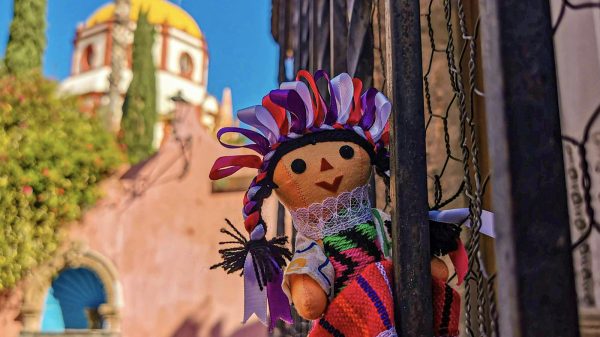“It is clear: The state was established to serve you. If you have health problems, the government must care for you. In times of illness, it should be there to give aid and support. What has our government done in this regard?”
That was the question posed by President Benigno “Noynoy” Aquino III himself during his fourth State of the Nation Address last year.
And this year, four years since Filipinos were led to the “daang matuwid (righteous/right path)”, the commitment made by PNoy to Filipinos – that there will be a better tomorrow – seems to be untenable. In fact, there seems to be no decent stopovers along the way, only obstacles.
The plight of Filipino people living with HIV (PLHIVs) exemplify this.
‘WITCH HUNT’
“(DOH) Sec. Enrique Ona would want to shift from voluntary testing to something that’s compulsory. We want health providers to screen adults who may have a risk for HIV, so that they can be properly counseled on what to do next,” Tayag was quoted as saying.
While the DOH blindly considers this move to be beneficial to everyone, especially to those who are “unaware and reckless with their lifestyle”, different HIV-related organizations and support groups believe otherwise.
“We were surprised and very alarmed by the pronouncement of the DOH. We feel that the mandatory testing, other than being very violative of the AIDS law, will also violate fundamental human rights. If HIV testing would be required for employment or upon entry to educational institutions, then that’s a violation of the socio-economic and socio-cultural rights. It will promote greater stigma and discrimination,” Perci Cedaña, National Youth Commission’s commissioner-at-large, said.
The DOH also noted that the prevalence of HIV among men who have sex with men (MSM) is really alarming and it shouldn’t be taken lightly.
What the DOH leadership fails to see is the diversity of the LGBTQ community, whose members don’t follow the stereotyped images that the media or the everyday Filipino perceive.
“Even (if) DOH possesses evidence that show the complexity of Filipino behavior, in a concentrated epidemic among MSM and transgenders, who do you actually require to get tested? This population does not conveniently fit whatever stereotypical images that Sec. Ona may have about the (LGBTQ) community. Would DOH require all of them to get tested? The problem is not simply about increasing uptake of HIV testing. There’s a more fundamental issue: it’s Sec. Ona himself,” Network to Stop AIDS (NSAP) said in a statement.
Project Red Ribbon, an organization that composes mainly of PLHIV, noted that typecasting a certain group will not solve the growing problem of HIV in the country.
“It’s basically a witch hunt, and different organizations and institutions, especially BPOs, will be affected by this. (We are) so against this because it’s basically typcasting a certain group. The problem is, when you say MSM, not all MSM are gay. So does this mean that they will only focus with this group? What about the other groups? This is a clear typecasting of MSM. We don’t think it’s going to work,” said Pozzie Pinoy, founder of the Project Red Ribbon.
DISAPPOINTMENTS
While the government is “trying” to decrease the prevalence of HIV infection in the country, the quality of service and professionalism among medical practitioners in some health centers and treatment hubs continue to be lacking.
One PLHIV, RT, found out that he’s HIV-positive while he was finishing the requirements needed for a job application in Dubai.
“When I went back to the clinic in Malate to get my confirmatory test, the nurses and medical technicians who were on duty immediately went to the reception area to take a good look at me and they whispered to each other,” he recalled.
And what the attending physician told RT was even more alarming. “Okay lang ‘yan, matagal pa naman ang 10 years. Mga five years pa bago mo maramdaman na may AIDS ka. Marami ka pa naman pwede magawa niyan (That’s okay; you still have 10 years. It will take five years before you start feeling the effects of having AIDS. You can still do a lot ’til then).” After hearing that, he just left the clinic.
Several days later, he consulted with another doctor in San Lazaro Hospital.
It has been three years since that incident.
RT is now taking antiretroviral medicines (ARV) to help control the growth and spread of the HIV virus in his body. His doctor told him that he’s in superb shape – he goes to the gym every other day and he hasn’t experienced any opportunistic infections.
Despite the unfortunate initial experience, RT is still “luckier” than most PLHIVs.
In the case of Paolo (not his real name), a 22-year-old barista who is also HIV-positive, the available resources in the Visayas region to attend to the needs of PLHIVs is insufficient, if not lacking.
“Mahirap ang kalagayan ng mga may HIV dito sa Visayas. Minsan nangyayari na hindi kami naasikaso kasi hindi available ‘yung doktor namin. Kaya ‘yung iba sa amin, nagbibyahe pa papuntang Cebu para ma–check-up at makakuha ng ARV (Our status in the Visayas is difficult. At times, no one looks after us because no doctor is available. So some of us have to travel to Cebu just to get checked, as well as to get ARV supplies),” he said.
As a minimum wage earner, Paolo cannot afford to be skip work just so he can go to Cebu.
“Naalala ko five or six months ago, nagkalagnat ako for three weeks, tapos noong nagpunta ako sa hospital namin dito, naka–leave daw ‘yung doktor na naka-assign sa amin, at pinapapunta ako sa Cebu para matignan. Sumabay pa noon, naubos na ‘yung supply ko ng ARV, kaya hindi rin ako nakainom ng gamot ng almost one month. Tapos nag-consult na lang ako sa general practitioner doctor, at sinabi ko ang status ko. Wala naman akong choice (I remember five or six months ago, I had fever for three weeks, so I went to the hub here, but the doctor was on leave; I was told to go to Cebu for me to get checked. It was also that time that I run out of ARVs, so I have not been taking my medicines for a month. I was forced to consult with a general practitioner; I was forced to disclose my status. It’s not lik I had a choice),” he recalled.
UNNECESSARY PANIC?
Although Filipino PLHIV benefit from PhilHealth’s Outpatient HIV/AIDS Treatment Package, which covers the majority of their hospital and treatment expenses, there is also the growing problem that the government is facing in terms of ARV supplies.
“Actually, we don’t have a problem in ARV supplies. It just so happened that there was an abnormal situation. There was a miscalculation when they ordered the supply, that’s why there was a delay for a few months,” said Dr. Rossana Ditangco, research chief of the Research Institute for Tropical Medicine (RITM). “We experienced the shortage not because we didn’t have a budget, there was just a delay in the delivery. There’s no need to cause unnecessary panic towards this. As far as the budget is concerned, I don’t think we will experience any problem because the ARVs that we are buying are very cheap, they are just generics. And PhilHealth is there and ready to take over eventually for the cost of treatment.”
Supposedly pacifying words that does not hold sway to so many PLHIVs.
In the case of JB, who lives in Quezon City, going to RITM Alabang to get ARV supplies is a tedious task, especially if he will only be given one to two weeks’ supply.
“I have been taking ARVs for more than four years now, and this year was the hardest for me, not because of the side effects I feel whenever I take the medicines, but the stress I experience every time I go to RITM. The nurses told me that they cannot give three and half months worth of ARVs, which I normally get, because they are ‘budgeting’ it to accommodate other patients. They only gave me two weeks’ worth of ARVs and I was asked to go back after I finish them,” he said.
The government, it seems, is ending up covering up the real situation by not being open about this, so that some organizations supporting the PLHIV community are ending up making their own efforts to help augment the problem.
“The PLHIV community has been panicking for months now. The DOH has not been that transparent with its programs when it comes to antiretroviral medicines. The Project Red Ribbon itself has already purchased ARVs to support the community. So if there’s no problem, why is it that we are buying from other countries to supplement the problems with the stocks?” Pozzie Pinoy said.
(IN)TANGIBLE EFFORTS
PLHIV in the Philippines is protected by the Republic Act 8504 (The Philippine AIDS Law), which includes the following provisions: HIV and AIDS education in the workplace; prohibiting compulsory HIV testing; medical confidentiality; and prohibiting discriminatory acts and policies in the workplace.
But while RA 8504 may be beneficial, it is not fully functional. Truth be told, it is not even being practiced by the people who are dealing with PLHIVs.
As RT, who remains traumatized by the treatment he received at the hands of healthcare providers when he went to the clinic in Malate, is right in saying that he didn’t deserve to be judged by the people who are supposed to take care and make him feel better.
Paolo shouldn’t have suffered for three weeks because the attending physician for HIV patients in his locality was on leave.
JB could have used the time he spent traveling back and forth to Alabang to do other things.
If the government is really doing anything to improve the lives of PLHIVs, then why are there PLHIVs experiencing unnecessary distress?
In the end, as far as healthcare provision is concerned, how long must Filipino PLHIVs wait until they see concrete efforts from this government? When will they stop questioning the decisions made affecting them, and just enjoy the supposed benefits?





























































